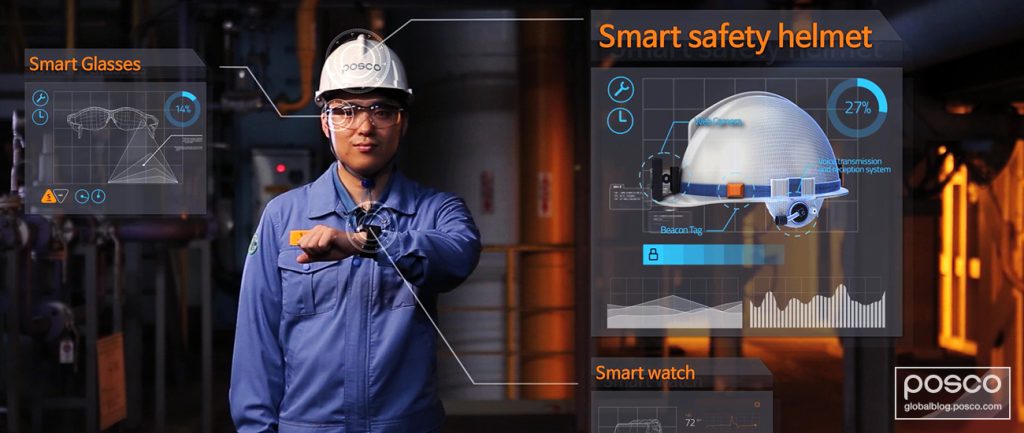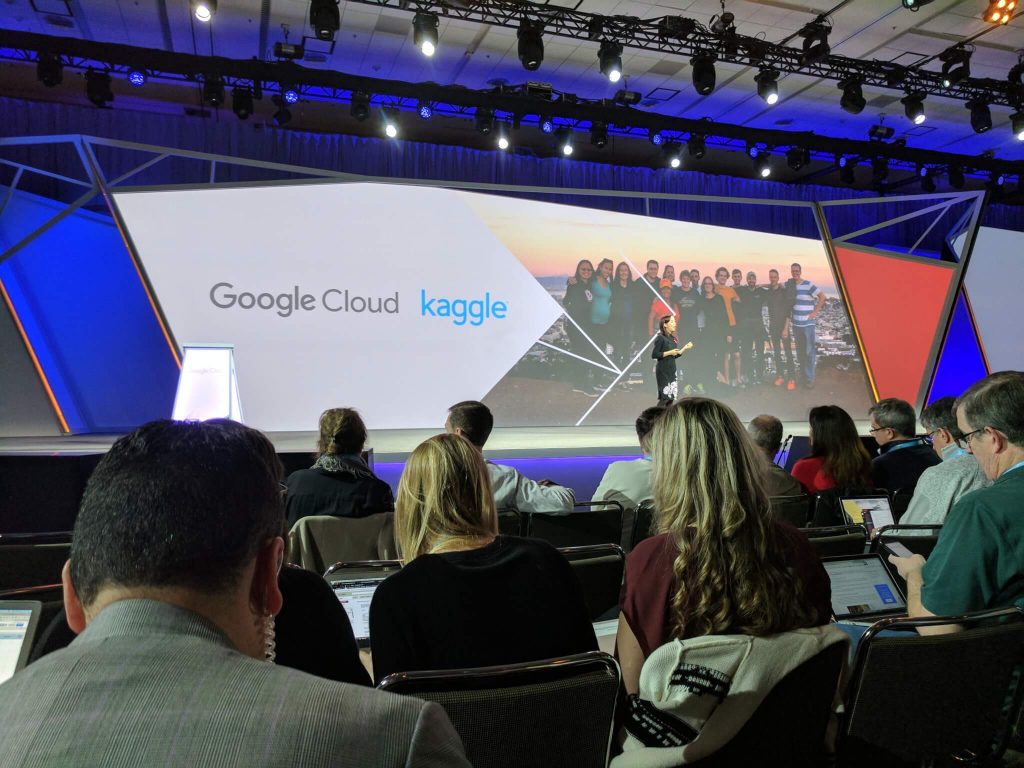The value of artificial intelligence (AI) in the manufacturing market was USD 272.5 million in 2016. That number is projected to reach USD 4,882.9 million by 2023, at a CAGR of 52.42 percent from 2017 to 2023 according to Markets and Markets. It’s no surprise then, that companies are rushing to boost their competitiveness with AI.
As a steelmaking company, POSCO has been working towards becoming a “Smart POSCO”, or incorporating the implementation of AI into their production practices. In 2016, POSCO established a Smart Solution Council to research AI, big data and IoT applications. To date, the company has achieved a cost reduction of USD 14 million with the new technology. Even as one of the first steel producers in the world to implement a smart factory for production, the road ahead is a long one. Members of the discussion panel at the 2017 Smart POSCO Forum offered their expert opinions on how companies should move forward with AI research and applications.
Problem Mining
“One of the biggest difficulties in applying AI to manufacturing companies is problem mining. The only way to solve a problem is to find it and define it.” Kim Byung-In, a professor at the POSTECH Department of Industrial and Management Engineering, started off discussions and added, “Along with problem mining, people can learn from the past with reinforcement learning. Reinforcement learning means learning through similar tasks from the past to apply to new assignments. Defining problems and solutions more precisely and systematically managing related keywords can be useful for future tasks.”
Professor Zhang Byoung Tak, an AI professor at Seoul National University and a distinguished professor for POSCO added, “Traditionally, people solve problems, but in the generation of AI, AI will be able to solve problems for us… People now have to focus on defining problems, implementing systems and getting the right kind of data.”
Cooperative Research and Investment
Along with defining the exact problems that AI can provide solutions for, the implementation of AI will also call for a new working culture for companies and industries.
Tech company VUNO CTO Jung Gyuhwan stated, “Each company has its own production or operation method, and different data formats and protocols, but product inspection and screen UI (User Interface) are common areas. If we can find such common areas that can be commercialized and continue to research ways to expand AI applications to different sectors, we can achieve meaningful results together.”
Jung went on to highlight that most AI personnel are unfamiliar with manufacturing. In particular, steel production terms are so difficult that it takes a considerable amount of time to share and understand information. There are also numerous obstacles and obligations for startups entering an unfamiliar development environment full of regulations and restrictions on things like the use of codes.
“In other words, task efficiency is a trade off with information security. I believe that if there is such a process in POSCO where the risk of technology leakage is not high, it will speed up results through collaboration with start-ups. POSCO ICT in Pangyo is a good place for startup employees to work. If we can take advantage of the POSCO ICT databases, collaboration with start-up companies will be easier. As of now, there are not many AI companies in Korea that specialize in manufacturing. Most people don’t even know that there is a lot of data available in the manufacturing industry. That’s why fostering start-up companies specializing in manufacturing now, is a good idea.”
According to CB Insights, M&A (mergers and acquisitions) of AI startups have increased 700 percent since 2011, because they are more efficient and often more insightful when it comes to AI research. Besides investing in existing startups, members of the panel agreed that collaborative competitions such as Kaggle, a contest platform where data scientists from around the world participate in solving problems in industry and society, are a great place to find talent and foster them as start-up companies.
Tackling New Challenges
The flurry of activity around AI research shows just how new the sector really is. People are still finding ways to apply AI across different sectors and industries. In such a volatile environment, how do companies and researchers navigate their way forward?
According to Choi Heeyoul, a professor of computer science at Handong Global University, companies need to “start where the people, problem definition and data are ready. Whether it is in production, sales, distribution, etc., if there is the will to solve problems, then results will follow. Especially when collecting data, you need the help of data analysts. For example, classification data for different types of steel can only be analyzed if the history of the classification criteria is recorded. Speech recognition is not any better for AI application than other fields, yet the most active and productive research has been completed in this sector. This is attributable to the will to apply AI, the abundance of accurate data and close cooperation with data analysts.”
Professor Zhang Byung-Tak had another approach to offer. “I hope people will boldly take on challenges. The dramatic increase in computing power can now enable attempts that were previously considered reckless…No matter how much data we gather, it will never be enough. We need to approach problems as experiments and just start. One way to go about it is to work in reverse instead of waiting for data to be accumulated. You can start the task to define the data that is needed and determine the coherence of the data to the task.”
Lee Jong-Seok, a Professor at Sungkyunkwan University added, “When we are defining problems, we need to separate them into ones that can be solved in the short term and ones that require long term solutions. Some problems can be solved with minor improvements, while other problems will persist. For the latter, it is important to have patience and invest in a solution over a long term.”
That’s exactly what manufacturing companies are doing. They are collecting data every stage of production all the way to sales and administration. Big data is now available to study and apply to boost companies’ efficiency, sustainability and performance. Those who come up with the optimal software and modeling systems for data analytics will win the competitive edge early on.
UNIST professor Choi Jaesik echoed the panel’s sentiment, in closing, saying, “It’s very uncommon for a manufacturing company to hold AI courses for all their employees. I think POSCO can take pride that…POSCO is a great place to apply AI and achieve results. There is already plenty of data on site and employees are continuously working to obtain more accurate data. I look forward to seeing what POSCO will bring to the advancement of AI.”
POSCO CEO Kwon Ohjoon plans on doing exactly that, by increasing investment in research and implementing AI technology where applicable. Read more on POSCO’s smartization efforts here.
Don’t miss any of the exciting stories from The Steel Wire – subscribe via email today.
- 2017 Smart POSCO Fourm
- AI
- ai factory
- ai manufacturing
- artificial intelligence
- Big Data
- collaboration
- environment
- Hyundai Motor Group
- IIOT
- industry
- infoscience
- Innovation
- iot
- manufacturing
- POSCO
- posco ai
- POSCO ICT
- POSTECH
- research
- sales
- smart
- smart city
- smart facory
- Smart Factory
- smart manufacturing
- Smart Solution Council
- smart steel
- smartization
- steel plant
- steel production
- sungkyunkwan
- sungkyunkwan university
- sustainability
- technology
- unist
- USD




